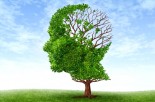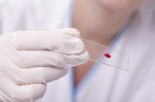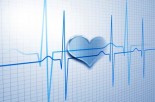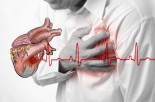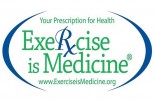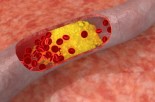Search Podcasts
Thursday, 24 October 2013 12:45
Disease Doesn’t Have to Run in the Family
Do you know what diseases run in your family? Fortunately, genetics doesn't have to predict your risk of getting one of them.
Published in
To Your Good Health Radio
Thursday, 24 October 2013 12:33
Are You Disease-Proof?
Are you disease-proof? What if you were able to reduce your risk of disease by a whopping 80 percent?
Published in
To Your Good Health Radio
Thursday, 10 October 2013 14:45
Nitric Oxide: Lesser Known Heart Disease Risk
Published in
Healthy Talk w/ Dr. Michael Smith
Wednesday, 25 September 2013 14:33
Statin Drugs vs. CoQ10: Putting You in Danger
If you're on a statin medication but not taking CoQ10, you may be putting your health in severe danger.
Published in
Mindful Medicine
Wednesday, 18 September 2013 11:22
5 Ways to Curb Your Cravings for Sugar
Sugar contributes to weight gain, pre-diabetes and can take a toll on your overall appearance. Learn how to kick the habit.
Published in
Naturally Savvy
Thursday, 05 September 2013 14:45
High Homocysteine Can Damage Your Brain
Elevated homocysteine is now associated with cognitive decline in older adults. Might you be at risk?
Published in
Healthy Talk w/ Dr. Michael Smith
Thursday, 05 September 2013 14:33
Secrets Your Heart Doctor May Not Tell You
As much as you'd like to trust your doctor, there are things they may neglect to tell you regarding heart health.
Published in
Healthy Talk w/ Dr. Michael Smith
Thursday, 05 September 2013 14:00
Coffee Drinking Slashes Your Risk of Stroke
Recent evidence indicates that coffee drinking can improve endothelial function, reducing your risk of stroke.
Published in
Healthy Talk w/ Dr. Michael Smith
Tuesday, 03 September 2013 12:33
Sudden Cardiac Death in Youth Sports: Life-Saving Information
If you or a family member is genetically at risk for heart disease, your student athlete could be at even greater risk for sudden cardiac death.
Published in
Train Your Body
Tuesday, 03 September 2013 12:22
Can Energy Drinks Cause a Heart Attack?
Energy drinks can do wonders for your sluggishness. But they may also do irreversible damage to your heart.
Published in
Train Your Body
Thursday, 22 August 2013 14:45
Is Blue Corn Healthy or Harmful?
Blue corn is loaded with the same type of antioxidants as blueberries and tart cherries. But, is it healthy? Or potentially harmful?
Published in
Healthy Talk w/ Dr. Michael Smith
Tuesday, 20 August 2013 12:33
In Your 20s: Should You Worry About Your Heart?
If you're in your 20s, you may think heart disease won't hit you. But the choices you make now can affect your risk later on.
Published in
Train Your Body
Tuesday, 20 August 2013 12:22
Caffeine & Heart Health: Good for You or Not?
You love your morning cup of coffee or afternoon espresso for its mid-afternoon boost. But could your caffeine habit be affecting your heart?
Published in
Train Your Body
Monday, 19 August 2013 11:00
Atrial Fibrillation: Symptoms, Risk Factors and Treatment
Published in
Memorial Care - Weekly Dose of wellness
Thursday, 15 August 2013 14:00
Reviving the DASH Diet for High Blood Pressure
The DASH diet can lower systolic pressure by as much as 11 points. So why aren’t more people with high blood pressure following it?
Published in
Healthy Talk w/ Dr. Michael Smith
Monday, 12 August 2013 12:45
How Pollution Affects Your Health
Can the heavy traffic in your commute be affecting your health? No matter where you live, the quality of the air you breathe impacts you every day.
Published in
Staying Well
Monday, 12 August 2013 11:00
Be Smart - Protect your Heart: How to Prevent Heart Disease
Published in
Memorial Care - Weekly Dose of wellness
Monday, 29 July 2013 12:22
New Genetic Testing for Cardiac Diagnoses
This type of testing can be the difference between effective disease management and needless risk of sudden cardiac death.
Published in
Staying Well
Monday, 22 July 2013 12:22
How Technology is Changing the World of Medicine
Published in
Staying Well
Tuesday, 25 June 2013 12:11
Is Your Sedentary Lifestyle Killing You?
Learn ways to incorporate movement into everyday life and give up that sedentary lifestyle once and for all.
Published in
Train Your Body
Thursday, 20 June 2013 12:45
New Blood Test: Predicts Risk of Future Heart Attack
What if there was a simple blood test that would tell if you are at risk for a heart attack? Would you take it?
Published in
To Your Good Health Radio
Thursday, 20 June 2013 12:33
Heart Healthy: It’s Never Too Early
Ever wonder what causes a heart attack? Is it high cholesterol, bad eating habits, obesity? Learn the biggest reasons and how to prevent them.
Published in
To Your Good Health Radio
Tuesday, 18 June 2013 12:45
Are You Sabotaging Your Own Weight Loss?
You may not even realize the many ways you undermine your own weight loss efforts. We're here to help.
Published in
Train Your Body
Saturday, 01 June 2013 16:25
Tell Me the Truth, Doctor
Can cell phones really cause brain cancer? Get to the bottom of this and other common health questions.
Published in
YOU The Owners Manual Podcast
Thursday, 23 May 2013 14:45
The Trinity of Nutrients for Lowering Blood Pressure
Three nutrients are proven safe and effective for lowering blood pressure – in some cases even better than prescription drugs.
Published in
Healthy Talk w/ Dr. Michael Smith
Thursday, 23 May 2013 14:33
The Lesser-Known Heart Disease Risk Factors
Statin drugs have failed to eradicate heart disease. Why? Because lowering cholesterol is only one of several risk factors.
Published in
Healthy Talk w/ Dr. Michael Smith
Thursday, 23 May 2013 14:00
Burning Fat Without Stimulants
Research shows how a new plant extract called Fucoxanthin safely reduces body fat without stimulating your brain or heart, while lowering disease risk factors.
Published in
Healthy Talk w/ Dr. Michael Smith
Monday, 20 May 2013 12:11
Healing Foods: The Ultimate Medicine
Published in
Staying Well
Tuesday, 14 May 2013 12:00
Sitting All Day Can Damage Your Health
Published in
Train Your Body
Friday, 10 May 2013 10:45
Antibiotics and Cardiac Death
Could azithromycin, a popular antibiotic, be the cause of cardiac death? Learn how to protect yourself.
Published in
The Dr. Leigh Vinocur Show
Friday, 10 May 2013 10:22
Have You Checked Your Blood Pressure Lately?
Published in
The Dr. Leigh Vinocur Show
Friday, 10 May 2013 10:11
The 411 on Preventing Stroke
How can you prevent a future stroke? Learn important steps to take to protect yourself and your loved ones.
Published in
The Dr. Leigh Vinocur Show
Friday, 10 May 2013 10:00
Learn Your Stroke Factors
Published in
The Dr. Leigh Vinocur Show
Tuesday, 30 April 2013 12:11
Exercise is Medicine: Help this Sustainable Global Initiative
Exercise is Medicine is a sustainable global initiative. Be a part of an active lifestyle and change your life.
Published in
Train Your Body
Tuesday, 30 April 2013 12:00
Your Best Health Prescription: Exercise is Medicine
What if there was one prescription that could prevent and treat dozens of diseases, such as diabetes, hypertension and obesity?
Published in
Train Your Body
Monday, 18 March 2013 12:45
The Antibiotic You Need to Worry About
If you are taking the widely prescribed antibiotic Azithromycin (Zithromax, Zmax), you should be aware of the potential risks for heart problems.
Published in
Staying Well
Monday, 25 February 2013 12:11
The Great Cholesterol Myth
Is cholesterol the real culprit behind America's heart disease epidemic? Dr. Stephen Sinatra says no.
Published in
Staying Well
Monday, 25 February 2013 12:00
5 Ways to Laugh, Cry & Eat Heart Disease Away
Dr. Stephen Sinatra, MD is a powerhouse nutrition expert to help you laugh, cry and eat your heart disease away!
Published in
Staying Well
Wednesday, 20 February 2013 12:33
Turning Family Time Into Active Time
For a lot of families, Sunday afternoons are a time to be together at the movies or the mall. As enjoyable as those outings may be, start thinking about spending some of that family time doing physical activities.
Published in
Healthy Children
Wednesday, 20 February 2013 12:11
Healthy Hearts in Children
Did you know that there are cholesterol screening guidelines for children? Learn what you can do to improve your children's lifelong heart health.
Published in
Healthy Children
Wednesday, 20 February 2013 12:00
Is Your Child At Risk For Heart Disease?
If members of your family have had heart disease at an early age, your child may be at risk for early-onset heart disease.
Published in
Healthy Children
Friday, 15 February 2013 10:22
Overcrowding in the ER can Cause PTSD in Heart Patients
A new study in JAMA suggests that there’s a link between emergency room over-crowding and post-traumatic stress disorder in heart patients.
Published in
The Dr. Leigh Vinocur Show
Friday, 15 February 2013 10:11
Women Be True to Your Heart, Change Your Lifestyle
Published in
The Dr. Leigh Vinocur Show
Friday, 15 February 2013 10:00
Women & Heart Disease: Know Your Risk Factors
What are the symptoms or signs of a heart attack in women? How do they differ from men? Who’s most at risk?
Published in
The Dr. Leigh Vinocur Show
Tuesday, 12 February 2013 10:00
Can Sex Make You Skinnier?
Published in
Staying Well
Monday, 11 February 2013 12:33
Understanding Heart Disease in Women
All women face the threat of heart disease. 1 in 4 women will die from it. Here are the factors you need to know.
Published in
Staying Well
Monday, 11 February 2013 12:22
The Heart Attack Symptoms Women Need to Know
Published in
Staying Well
Saturday, 02 February 2013 16:00
Be Heart Smart
How to eat, exercise, sleep, have a healthy sex life and manage stress to lower key risk factors for heart disease.
Published in
YOU The Owners Manual Podcast
Thursday, 31 January 2013 12:11
The Truth About Heart Disease
There is new ground-breaking information about heart disease, and the correct way to prevent and treat it might surprise you.
Published in
To Your Good Health Radio
Monday, 28 January 2013 12:33
Suprising Truth About Diet & Low-Cal Foods
We trick ourselves into thinking that since we are eating lower calorie foods, they are nutritional, but not all diet foods are created equal.
Published in
Staying Well





